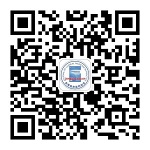-
摘要: 自我效能是指人对自己能否成功地进行某种成就行为的主观推测和判断,当人在疲乏、疼痛、焦虑、抑郁、心理压力大时,应对各种事件的判断往往是消极的,即自我效能较低[1].通过自我效能干预,能提高患者对术后疼痛的自我控制能力[2]、降低患者焦虑抑郁水平[3]、提高患者自我控制放化疗副反应(如恶心、呕吐)的能力[4]以及减轻患者疲乏[5]等.癌因性疲乏(CRF)是由于癌症及相关治疗引起患者长期紧张和痛苦而产生的一系列主观感觉,如虚弱、活动无耐力、注意力不集中、动力或兴趣减少等[6].金晓燕[7]研究指出所有结直肠癌术后化疗患者均存在不同程度的疲乏,其中54.46%的患者经历中度疲乏,21.78%的患者经历重度疲乏.本院通过对结直肠癌术后化疗所致癌因性疲乏的患者在常规护理的基础上实施自我效能干预,取得满意效果,现报告如下.
-
-
冯会玲, 孙田杰. 自我效能理论在癌症患者中的应用现状 [J]. 护理研究, 2012(1):193.doi: 10.3969/j.issn.1009-6493.2012.03.001. StreetJr R L, Slee C, Kaluokalani D K. Improving physician-patit communication about cancer pain with a tailored Educationcoaching intervention [J]. Patient Education and Counseling, 2010.42. Mystakidou K, Tsilika E, Parpa E. Self-efficacy beliefs and levels of anxiety in advanced cancer patients [J]. European Journal of Cancer Care, 2010.205. Lev E L, Daley K M, Conner N E. An intervention to increase quality of life and self-care self-efficary and decrease symptoms inbreast cancer patient [J]. Scholarly Inquiry For Nursing Practice, 2001(3):277. Kurtz M E, Kurtz J C, Given C W. Patient optimism and mastery-Do they play a role in cancer patients? management of pain and fatigue [J]. Journal of Pain and Symptom Management, 2008(1):1. Shirley E. A harazat health science company [J]. Oncology Nursing, 2001.787. 金晓燕. 结直肠癌患者术后化疗期间癌因性疲乏与疾病不确定感的相关性分析 [J]. 护理管理杂志, 2011(1):3.doi: 10.3969/j.issn.1671-315X.2011.01.002. 谈学灵, 刘素珍. 癌因性疲乏评估研究进展 [J]. 护理研究, 2008(2):395.doi: 10.3969/j.issn.1009-6493.2008.05.009. 刘华玉, 马小琴. 癌因性疲乏护理干预研究进展 [J]. 护理实践与研究, 2012(9):131.doi: 10.3969/j.issn.1672-9676.2012.09.068. 徐波. 肿瘤护理学 [M]. 北京:人民卫生出版社, 2008.111. 颜斐斐, 张立力. 结直肠癌术后患者癌因性疲乏与焦虑抑郁关系的研究 [J]. 护理学杂志, 2009(8):83.doi: 10.3870/hlxzz.2009.08.083. 张凤玲, 韩丽沙. 癌因性疲乏的护理研究进展 [J]. 中华护理杂志, 2008(3):271.doi: 10.3761/j.issn.0254-1769.2008.03.035. Brix C, Schleussner C, Fuller J. The need for paychosocial support and its determinants in a sample of patients undergoing radio on cologicaltreatment of cancer [J]. Journal of Psychosomatic Research, 2008(6):541.
计量
- 文章访问数: 124
- HTML全文浏览量: 24
- PDF下载量: 8




 下载:
下载:
 苏公网安备 32100302010246号
苏公网安备 32100302010246号
